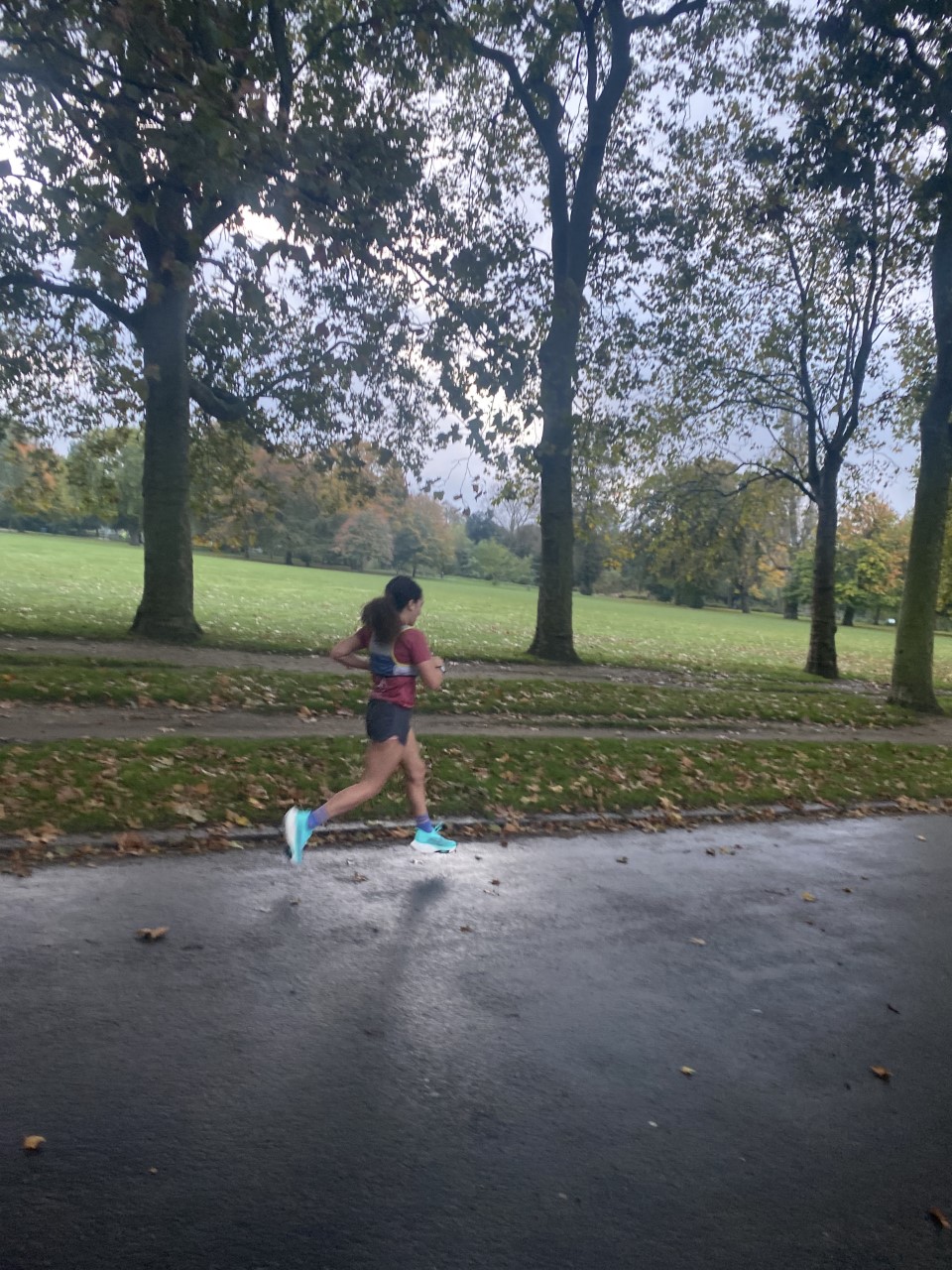Switching between morning and evening cardio workouts helps one runner to reap the benefits of working hard and enjoying movement.
Without a doubt, getting your morning off to a good start sets the vibe for the whole day. But I’ve found that being flexible as to when you work out (in my case going between mornings and evenings) can offer a host of benefits, from feeling motivated in the mornings to having a sounder sleep at night.
A new study published in the Cell Metabolism journal suggests that’s true, finding that while morning and evening exercise both have benefits, they have different outcomes on muscle and energy production and metabolism.
I’m now trying to reap those various benefits. After months of training for an ultra-marathon that never happened (thanks Covid!), I ran the London Marathon and a couple of half marathons at the start of October. Suffice to say, the summer involved a lot of running. Now that those events are over, I’m trying to go back to my pre-marathon training schedule of working out four or five times a week and moving in different ways.
You may also like
When to exercise: how to start exercising in the morning if you’re a night owl
For me, that means being flexible about the kinds of workouts I do and when they can be done: I like running first thing in the morning but prefer weight lifting after work or doing new classes later on the day when I’ve got more brain power. Here’s how I like to start the week.
Morning routine
6:30am – Wake up naturally
I really am a morning person. I’ve been waking up at 6.30am every day since I was about 14 so have never needed an alarm. There’s nothing worse than rushing in the morning, so on days when I’m working from home, I like to slowly come round, read the papers and then think about getting up.
7:15am – get up and dressed
Depending on how far I’m intending to run, I get out of bed between 7:15 and 7:30am. Despite owning loads of activewear, I wear the same couple of outfits to run in – a free race T-shirt and a pair of battered old Adidas shorts. These days, I’m running in my luminous orange London Marathon finisher shirt because it’s perfect for dark mornings and, well, I’ve seen all the other people who ran it wearing theirs in my local park. I’ve also got a brand new pair of Nike runners, which are an absolute dream to run in (although if it’s raining, I wear an older set – there’s no way these babies are getting dirty before their time!).
I always brush my teeth before running. It doesn’t matter what time of day the run is scheduled for, I need to have a clean mouth. Weird right? It’s a bit like going to work without brushing your teeth – you feel slightly unprepared and raggedy. I also brush my teeth standing on one leg, which is good before a run because you start to wake up all those stabilising muscles. I might even do the odd calf-raise or lunge if I feel a bit tight.

7:30am – warm up
Tooth brushing stretches done, it’s time to head out. Usually, I go running with my boyfriend and our twice-weekly morning runs give us an opportunity to chat about the day ahead. Neither of us eats before heading out unless we’re planning to run more than 10K, which isn’t realistic for a mid-week morning.
A PT once told me that warming up was essential for strength training but that the best way to get started with running was to simply run. When starting a workout, the idea is to remind the body of the sorts of moves you’re about to do. You want to strip those moves of any extra weight or complications; jogging for five minutes is a good refresher.
7:40am – run!
My short run days are either Mondays or Tuesdays, and that involves running between 5-8K. I live close to a network of canals, as well as a big park and cemetery, so am well-placed for those short routes. I know this area like the back of my hand thanks to running and cycling everywhere but when I first moved here, I used Strava to plot a series of different length routes.
8:20am – home for coffee
By 8:20am, I’m showered, dressed and making a pot of coffee. I’ve recently started eating breakfast again after months of intermittent fasting and I tend to have that a few hours later, around 10am. I’m definitely not one of these people who believe in supping protein or having food immediately after a workout – I need time for my belly to rest and recover.
Evening routine
5:45pm – cycle to pool
Cycling to the local lido takes about 20 minutes and often it’s cold and dark but at least I’m warm by the time I get there. I find it so much harder to exercise in the evening if I’m working from home; you’ve got to dig deep to get out when the lure of a quick walk and Netflix session is strong. When you’re in the office, it’s a lot easier – the gym or pool is on the way home.
6pm – swim for an hour
My goal is 30 lengths; anything more is a bonus (it’s a 50m pool). Despite how hard it can be to get going, swimming in the evening means that I can take my time and enjoy the process. With nowhere to rush off to, I can think about everything and nothing in the pool. Sometimes it rains and you’ve got this glorious sensation of being submerged in water while droplets make vibrations all around you. Plus, I love knowing that I’m going to be warm and cosy back at home before too long – rather than facing nine hours in the office!

7pm – cycle home
The main issue with swimming at a lido in the winter is getting out of it; it’s freezing and the changing rooms are all outside so you’ve got to be really quick getting dry. Forget leggings – you need baggy tracksuits to make getting clothes on as quick and easy as possible!
10pm – Sleep
After a hot shower, a hearty dinner and a few hours of relaxation, I can barely keep my eyes open. By 10pm, I’m nodding off in bed – totally exhausted and satisfied.
For more workout routines, nutritious recipes and first-person accounts, visit the Strong Women Instagram page (@StrongWomenUK).
Images: Miranda Larbi
Source: Read Full Article
